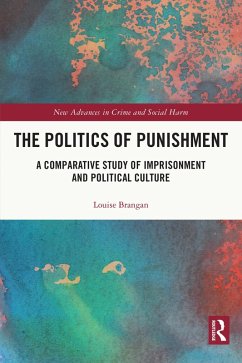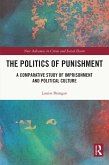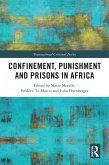Dieser Download kann aus rechtlichen Gründen nur mit Rechnungsadresse in A, B, BG, CY, CZ, D, DK, EW, E, FIN, F, GR, HR, H, IRL, I, LT, L, LR, M, NL, PL, P, R, S, SLO, SK ausgeliefert werden.
Vanessa Barker, Stockholm University
Louise Brangan offers us a reading of penal policymaking and influences on penal styles which will shape the field for years to come. Providing a much-needed reimagining of influences on Irish penal practices, alongside new insights on the Scottish approach, Brangan revitalises analyses of the politics of punishment. This insightful, timely and exciting work should be read by all who are interested in what influences approaches to penal policy.
Mary Rogan, Trinity College Dublin.
Louise Brangan's brilliant book provides us with a bridge between macro level analyses and micro level case studies of penal change. By developing the concepts of political cultures and imprisonment regimes, and by painstakingly excavating and comparing the relationships between them in Ireland and Scotland, Brangan's work represents a significant step forward not just for comparative penology but for the burgeoning field of 'punishment and society'. Combining history, politics and sociology, her book deserves to be widely read by anyone seeking to better understand punishment and how we might change it.
Fergus McNeil, University of Glasgow.
This lively, well-written book describes how, in their distinctive ways, penal policy in Scotland and Ireland adapted to the momentous social changes of the 1970s, 80s and 90s. Combining a rich theoretical framework with a detailed knowledge of the day-to-day crises, challenges and contingencies of prison system management, Louise Brangan shows how what she calls "penal culture" functions as a crucial intermediary between social processes and penal practices. Penal comparativists and historians will find much of interest in these well-researched case studies, which provide a timely reminder of the institutional complexity that characterizes even the smallest of penal systems.
David Garland, New York University.









